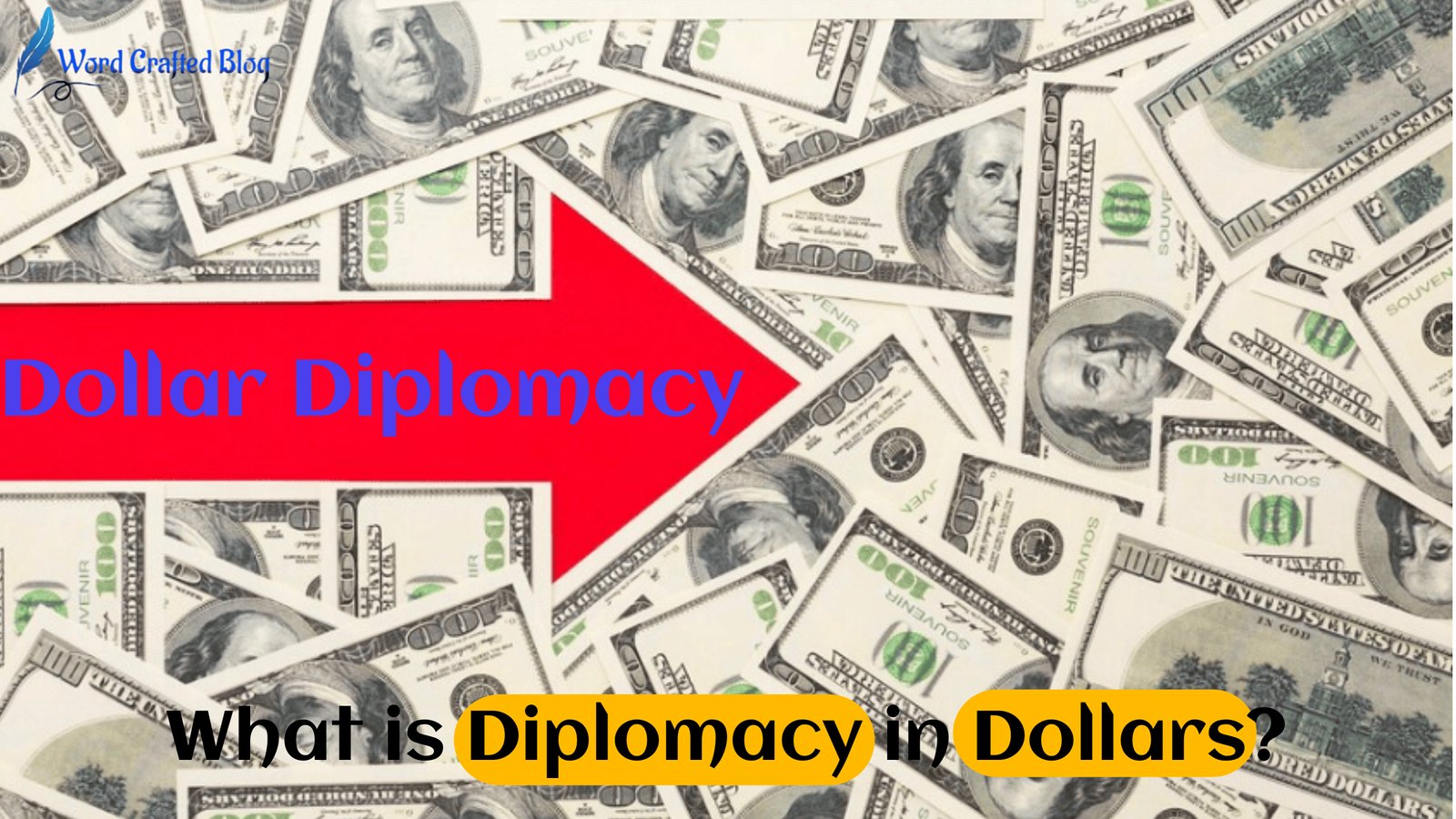Overview
A variety of approaches are used in the field of international relations diplomacy. The use of economic power to achieve political and strategic goals is known as “dollar diplomacy,” and it is one of the most important and lasting types of diplomacy. The US has long been a master of “dollar diplomacy,” using its economic power to influence world affairs and hold onto its leadership role. This essay will examine the idea of dollar diplomacy, its background, and its applicability in the modern world.
What is Diplomacy in Dollars?
Dollar diplomacy is the practice of influencing other countries’ policies by economic means, such as trade deals, investments, and foreign aid. To achieve desired results, this strategy is frequently employed in conjunction with more conventional diplomatic methods like discussions and treaties. When referring to the US’s economic expansion into Latin America and the Caribbean in the early 1900s, the phrase “dollar diplomacy” was first used.
Dollar diplomacy’s past
To further its foreign policy objectives, the US has historically used dollar diplomacy. To increase its sway over Latin America and the Caribbean in the early 1900s, the United States employed economic might. Large-scale infrastructure development, resource extraction, and financial assistance to supportive governments were all undertaken by the US government and private businesses in the region.
The US became a major player in the world economy after World War II, and one of its most important tools for foreign policy was dollar diplomacy. In order to restore war-torn Europe and Japan, the US employed investment and economic help, solidifying its place as the world’s economic superpower. By giving allies and strategic partners financial support, the US employed dollar diplomacy to offset Soviet influence during the Cold War.
The Dollar Diplomacy of Today
Dollar diplomacy is still an essential part of US foreign policy today. The US counters enemies upholds allies, and advances its objectives through the use of economic power. Dollar diplomacy in the modern era has several examples, such as:
1. Foreign aid: The United States gives billions of dollars in aid to nations all over the world, frequently contingent on certain political or economic circumstances.
2. Trade agreements: To strengthen economic links and have an impact on trade policies, the US negotiates trade agreements like the Trans-Pacific Partnership (TPP) and the North American Free Trade Agreement (NAFTA).
3. Investment: To finance enterprises, governments, and infrastructure projects overseas, the US makes significant investments.
4. Sanctions: The US imposes economic sanctions on nations that transgress international law or pose a threat to US interests.
Dollar diplomacy’s implications
The politics and economy of the world are greatly affected by dollar diplomacy. Dollar diplomacy has several advantages, some of which are:
Encouragement of economic growth: US aid and investment can help recipient nations’ economies expand and flourish.
2. Assisting friends: By preserving strategic relationships and partnerships, dollar diplomacy contributes to the stability and security of the area.
3. Countering adversaries: In order to lessen the impact of countries like China and Russia, economic might can be employed.
Dollar diplomacy is not without its shortcomings, though:
1. Dependence: Recipient nations’ sovereignty and autonomy may be jeopardized if they become overly reliant on US economic assistance.
2. Conditionalities: US investment and aid frequently have political and economic requirements attached, which may be interpreted as obtrusive or coercive.
3. Inequality: Because affluent countries like the US have disproportionate economic influence, dollar diplomacy can make the world economy more unequal.
In summary
A potent weapon in the US foreign policy toolbox, dollar diplomacy enables the nation to exert influence and accomplish its strategic objectives. Its advantages include helping allies and fostering economic growth, but it also has disadvantages including inequality, conditionalities, and dependence. It’s critical to comprehend the effects of dollar diplomacy and how it shapes international relations as the world economy continues to change.
Also read: Unveiling the Power of entretech.org: Your Ultimate Guide to Success
FAQs
1 What is the true nature of “dollar diplomacy”?
When nations utilize force to accomplish their objectives:
2 In what ways do nations exert influence over others through foreign aid?
by employing economic sanctions to punish disobedient nations;
3 How does dollar diplomacy have a negative side?
result in economic reliance and restrict a nation’s capacity for independent thought;
4 Which global institutions are subject to the power of dollar diplomacy?
NATO, the European Union, and the UN;
5 What possible effects could dollar diplomacy have?
reduction in global economic stability and security;

